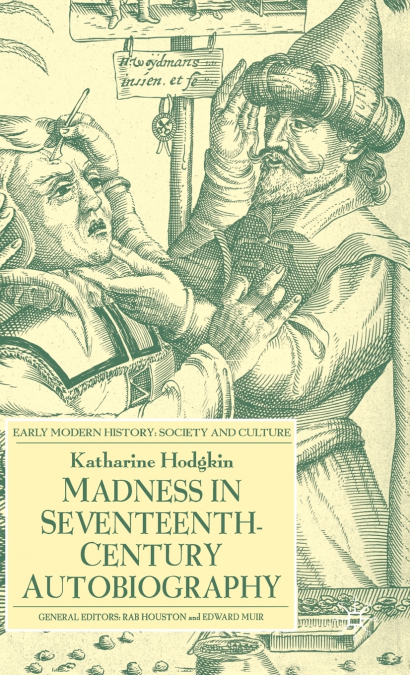
 Librería Perelló (Valencia)
Librería Perelló (Valencia)
 Librería Aciertas (Toledo)
Librería Aciertas (Toledo)
 El AlmaZen del Alquimista (Sevilla)
El AlmaZen del Alquimista (Sevilla)
 Librería Elías (Asturias)
Librería Elías (Asturias)
 Librería Kolima (Madrid)
Librería Kolima (Madrid)
 Donde los libros
Donde los libros
 Librería Proteo (Málaga)
Librería Proteo (Málaga)
Many early modern writers left accounts of their spiritual sufferings and convictions which deal in extremes of emotion and behavior--some identified by their contemporaries as mad, to be treated with medication, counseling, and confinement. Their writings give us a window into the hidden world of early modern madness from the point of view of the mad. How is madness experienced and treated, and how can it be recorded? How do religion, gender, and class inflect the processes of diagnosis and treatment? And what insights can the stories these writers tell give us into early modern culture?